« Return to all search results
Title Search Results
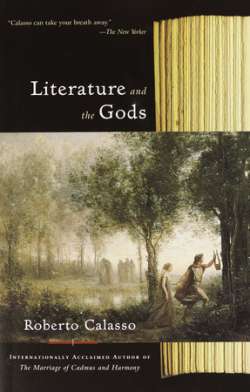
Brilliant, inspired, and gloriously erudite, Literature and the Gods is the culmination of Roberto Calasso’s lifelong study of the gods in the human imagination. By uncovering the divine whisper that lies behind the best poetry and prose from across the centuries, Calasso gives us a renewed sense of the mystery and enchantment of great literature.From the banishment of the classical divinities during the Age of Reason to their emancipation by the Romantics and their place in the literature of our own time, the history of the gods can also be read as a ciphered and splendid history of literary inspiration. Rewriting that story, Calasso carves out a sacred space for literature where the presence of the gods is discernible. His inquiry into the nature of “absolute literature” transports us to the realms of Dionysus and Orpheus, Baudelaire and Mallarmé, and prompts a lucid and impassioned defense of poetic form, even when apparently severed from any social function. Lyrical and assured, Literature and the Gods is an intensely engaging work of literary affirmation that deserves to be read alongside the masterpieces it celebrates.From the Trade Paperback edition.
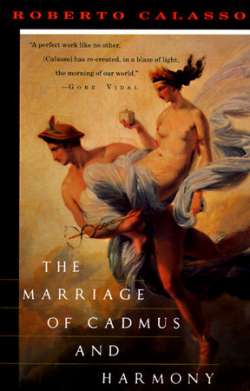
Presenting the stories of Zeus and Europa, Theseus and Ariadne, the birth of Athens and the fall of Troy, in all their variants, Calasso also uncovers the distant origins of secrets and tragedy, virginity, and rape. "A perfect work like no other. (Calasso) has re-created . . . the morning of our world."--Gore Vidal. 15 engravings.
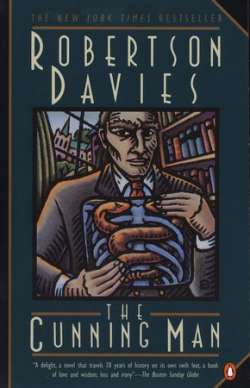
“A delight, a novel that travels 70 years of history on its own swift feet, a book of love and wisdom, loss and irony”—The Boston Sunday Globe When Father Hobbes mysteriously dies at the high alter on Good Friday, Dr. Jonathan Hullah – whose holistic work has earned him the label “Cunning Man” (for the wizard of folk tradition) – wants to know why. The physician-cum-diagnostician’s search for answers compels him to look back over his own long life. He conjures vivid memories of the dazzling, intellectual high jinks and compassionate philosophies of himself and his circle, including flamboyant, mystical curate Charlie Iredale; cynical, quixotic professor Brocky Gilmartin; outrageous banker Darcy Dwyer; and jocular, muscular artist Pansy Todhunter. In compelling and hilarious scenes from the divine comedy of life, The Cunning Man reveals profound truth about being human. The crowning achievement of “one of the most learned, amusing… accomplished novelists of our time and… of our century.” – The New York Times Book Review

Fifth Business Ramsay is a man twice born, a man who has returned from the hell of the battle-grave at Passchendaele in World War I decorated with the Victoria Cross and destined to be caught in a no man's land where memory, history, and myth collide. As Ramsay tells his story, it begins to seem that from boyhood, he has exerted a perhaps mystical, perhaps pernicious, influence on those around him. His apparently innocent involvement in such innocuous events as the throwing of a snowball or the teaching of card tricks to a small boy in the end prove neither innocent nor innocuous. Fifth Business stands alone as a remarkable story told by a rational man who discovers that the marvelous is only another aspect of the real. The Manticore Around a mysterious death is woven a glittering, fantastical, cunningly contrived trilogy of novels. Luring the reader down labyrinthine tunnels of myth, history and magic, THE DEPTFORD TRILOGY provides an exhilarating antidote to a world from where 'the fear and dread and splendour of wonder have been banished'. World of Wonders This is the third novel in Davies's major work, The Deptford Trilogy. This novel tells the life story of the unfortunate boy introduced in The Fifth Business, who was spirited away from his Canadian home by one of the members of a traveling side show, the Wanless World of Wonders.
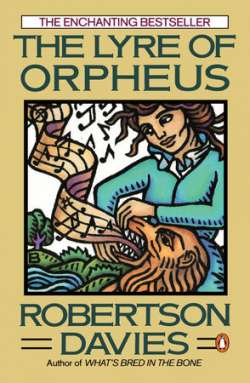
Hailed as a literary masterpiece, Robertson Davies' The Cornish Trilogy comes to a brilliant conclusion in the bestselling Lyre of Orpheus. There is an important decision to be made. The Cornish Foundation is thriving under the directorship of Arthur Cornish when Arthur and his beguiling wife, Maria Theotoky, decide to undertake a project worthy of Francis Cornish -- connoisseur, collector, and notable eccentric -- whose vast fortune endows the Foundation. The grumpy, grimy, extraordinarily talented music student Hulda Schnakenburg is commissioned to complete E. T .A. Hoffmann’s unfinished opera Arthur of Britain, or The Magnanimous Cuckold; and the scholarly priest Simon Darcourt finds himself charged with writing the libretto. Complications both practical and emotional arise: the gypsy in Maria’s blood rises with a vengeance; Darcourt stoops to petty crime; and various others indulge in perjury, blackmail, and other unsavory pursuits. Hoffmann’s dictum, "the lyre of Orpheus opens the door of the underworld," seems to be all too true -- especially when the long-hidden secrets of Francis Cornish himself are finally revealed. Baroque and deliciously funny, this third book in The Cornish Trilogy shows Robertson Davies at his very considerable best."Robertson Davies is the sort of novelist readers can hardly wait to tell their friends about." -- The Washington Post Book World
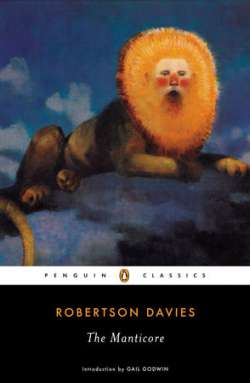
Hailed by the Washington Post Book World as "a modern classic," Robertson Davies’s acclaimed Deptford Trilogy is a glittering, fantastical, cunningly contrived series of novels, around which a mysterious death is woven. The Manticore—the second book in the series after Fifth Business—follows David Staunton, a man pleased with his success but haunted by his relationship with his larger-than-life father. As he seeks help through therapy, he encounters a wonderful cast of characters who help connect him to his past and the death of his father.For more than seventy years, Penguin has been the leading publisher of classic literature in the English-speaking world. With more than 1,700 titles, Penguin Classics represents a global bookshelf of the best works throughout history and across genres and disciplines. Readers trust the series to provide authoritative texts enhanced by introductions and notes by distinguished scholars and contemporary authors, as well as up-to-date translations by award-winning translators.
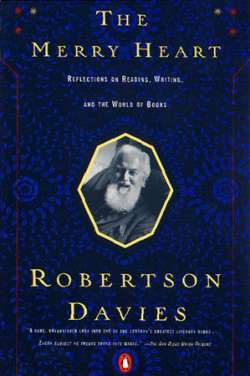
Readers around the world continue to mourn the 1995 death of a beloved literary icon, but this rich and varied collection of Robertson Davies's writings on the world of books and the miracle of language captures his inimitable voice and sustains his presence among us. Coming almost entirely from Davies' own files of unpublished material, these twenty-four essays and lectures are published for the first time.

Francis Cornish was always good at keeping secrets. From the well-hidden family secret of his childhood to his mysterious encounters with a small-town embalmer, an expert art restorer, a Bavarian countess, and various masters of espionage, the events in Francis’s life were not always what they seemed. In this wonderfully ingenious portrait of an art expert and collector of international renown, Robertson Davies has created a spellbinding tale of artistic triumph and heroic deceit. In this second book of the Cornish Trilogy, Davies spins a tale told in stylish, elegant prose, endowed with lavish portions of his wit and wisdom. "A deliciously readable story...An altogether remarkable creation, his most accomplished novel to date." -- The New York Times

Around the time of their parents' divorce, sisters April, May, and June recover special powers from childhood. Powers that come in handy navigating the hell that is high school. Powers that help them cope with the hardest year of their lives. But could they have a greater purpose? April, the oldest and a bit of a worrier, can see the future. Middle-child May can literally disappear. And baby June reads minds?everyone's but her own. When April gets a vision of disaster, the girls come together to save the day and reconcile their strained family. They realize that no matter what happens, powers or no powers, they'll always have each other. Because there's one thing stronger than magic: sisterhood.
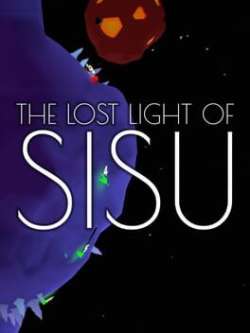
Sisu is a forgiving yet challenging physics driven platformer.
